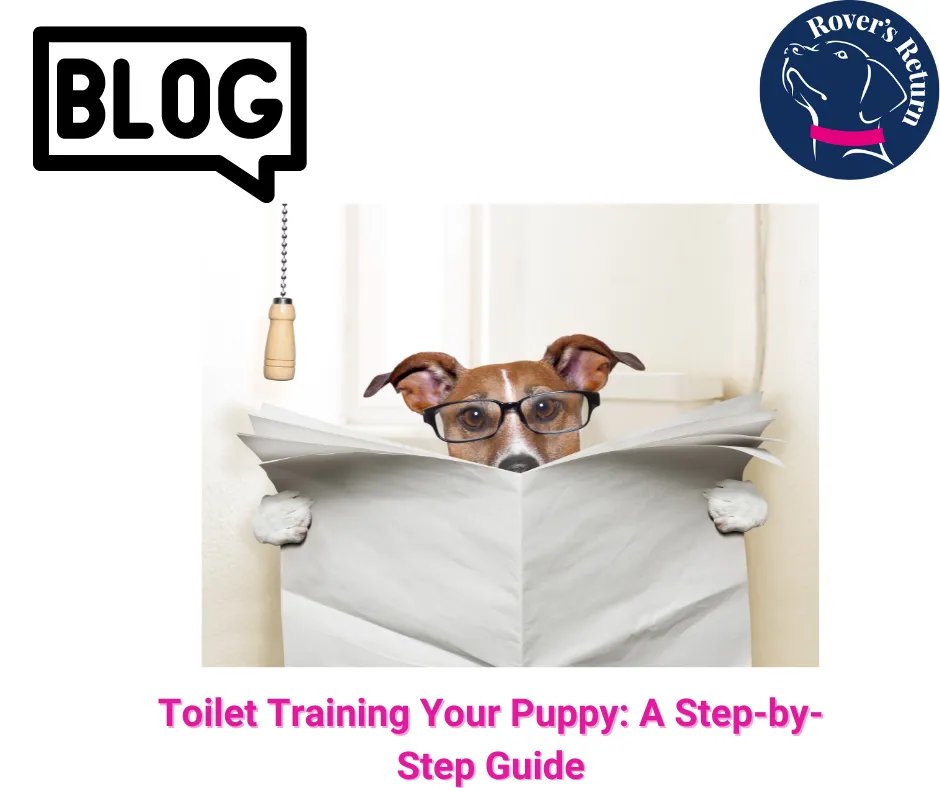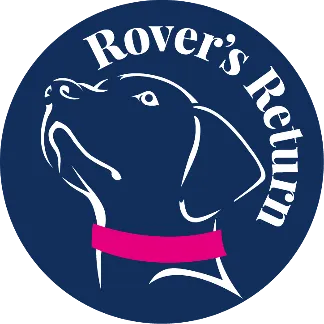Book a FREE 1:1 Assessment Call By Clicking HERE
Specialising In Dog Reactive Behviour
Accredited by APDT, ABTC and UK DOG Behaviour and Training Charter
Qualified and Experienced
Force Free Trainer and Behaviourist
Dog Training Leicestershire Educational Blogs

Toilet Training Your Puppy: A Step-by-Step Guide
“A puppy can hold their bladder for about one hour for every month of age.”

Toilet Training Your Puppy: A Step-by-Step Guide
Introduction:
Bringing a new puppy into your home is an exciting experience, filled with cuddles, playtime, and the start of a lifelong bond. However, it also comes with its challenges, one of the most immediate being toilet training your puppy.
Effective and long-lasting toilet training is crucial for a happy home and a happy puppy. Here’s a comprehensive guide to help you through the process.
Before starting the training, it’s important to understand a puppy's bathroom habits.
What Age Should A Puppy Be Trained?
You should start toilet training your puppy as soon as they come home.
Puppies have little control over their bladders from twelve to sixteen weeks of age. Accidents will happen.
Be patient and don't expect too much from your puppy. Toilet training your puppy is a marathon not a sprint. You may have to get up in the night to take them out to go to the toilet.
What is the fastest way to toilet-train your puppy?
There are no quick fixes in dog training. Every puppy is different, and you should be patient when training them.
Setting a routine for your puppy is the key to successful toilet training. Here’s a basic schedule to follow:
First thing in the morning: Take your puppy outside as soon as they wake up.
After meals: Puppies typically need to go about 5-20 minutes after eating.
After naps: Always take your puppy out after they wake up from a nap.
After playtime: Physical activity stimulates the digestive system.
When people visit: This is an exciting time and they can urinate out of excitement.
Before bedtime: Ensure your puppy goes out one last time before settling in for the night.
When you're home, watch your puppy for signs that they need to go out, these signs can be, sniffing the ground, circling, or whining. When you cannot supervise them consider confining your puppy to a small, safe area. Puppies are less likely to soil where they sleep and eat.
Limit their space so they can’t go in areas out of your sight.
Accidents will happen. When they do, stay calm and do not punish your puppy, this will only teach them to hide away when they need to go. Clean the area thoroughly to remove any lingering odours that might attract them back to the same spot. Enzyme-based cleaners are particularly effective for this purpose.
Should I Use Puppy Pads When Toilet Training?
Personally I don't recommend puppy pads, but they can be useful. You will need to train you puppy to go on the pad, so you might as well just train them to go outside.
It could be confusing for your puppy as you are effectively training them to go to the toilet inside. You will need to put the extra effort in to ween your puppy from going on the puppy pad
How long does it take to toilet-train your puppy?
It will take months for your puppy to learn to go to the toilet outside. Success will depend on how often you train them and how often you let them go outside. They can only hold their toilet habits in for so long when they are puppies. If you are leaving them alone for hours, expect accidents to happen. If they toilet when left alone and this is the only time it happens your dog may be suffering from separation-related issues.
If you’re struggling with toilet training despite consistent efforts, it may be helpful to consult with a professional dog trainer or your veterinarian. There may be underlying issues that need to be addressed.
If your dog goes to the toilet when you leave the room, you may need to seek professional help with separation Anxiety.
Positive Reinforcement
Positive reinforcement uses treats, praise, or playtime. If your puppy goes to the toilet inside the home, don’t make a fuss or tell them off, calmly take your puppy outside. Praise and reward your puppy immediately after they go outside. Immediately rewarding helps your puppy connect the act with the positive outcome and they will repeat it again and again. You can add on a sound or word which can help them to understand that you want them to go.

How Long Should You Wait Outside For Your Dog To Pee?
Every dog is different. You don’t need to stand outside for hours waiting for them to go. It is important to take them out regularly and understand the signs of when they need to go. When you take them outside and they are playing or distracted, it is likely that they do not need to go to the toilet. Take them back inside and monitor their behaviour, take them outside again later.
What Is The Hardest Dog To Toilet Traing?
No breed is harder to train. If you are patient and put in the time and effort you will see the benefits, regardless of your dog's breed. Toilet training takes time and consistency. Be patient with your puppy and maintain a consistent routine. Celebrate small victories and understand that your puppy is learning and growing.
Find out more with my tips for a well behaved dog.
Conclusion
Toilet training your puppy is a vital part of integrating them into your home and establishing a harmonious life together. With patience, consistency, and positive reinforcement, your puppy will learn the right habits. Enjoy the journey and the special bond that develops through this training process. Happy training!
Highly Qualified Behaviourist
Accredited by APDT, ABTC and UK DOG Behaviour and Training Charter
Accredited Scentwork Instructor
Force Free Trainer and Behaviour
Force Free Trainer and Behaviour
Accredited Scentwork Instructor
Accredited by APDT, ABTC and UK DOG Behaviour and Training Charter
Highly Qualified Behaviourist
Contact Us
Sam: 07725 802995
You can contact us via Live Chat button at the bottom of the screen or the contact box to the right.
You can also book one of our services online using the View Dates buttons under the service you require.
© 2023 by Rovers Return Dog Trainers Academy - Force Free Dog Training Lutterworth, Broughton Astley, Leicestershire, Hinckley, Nuneaton, Stoney Stanton, South Kilworth, Ullesthorpe
Privacy Policy | Terms and Conditions | Terms and Conditions of Services | Sitemap

Facebook
Instagram
X
LinkedIn
Youtube
TikTok